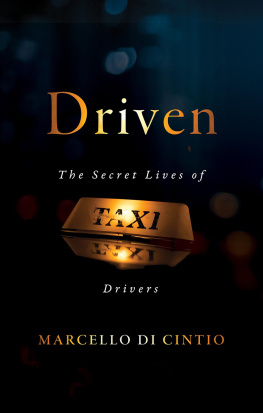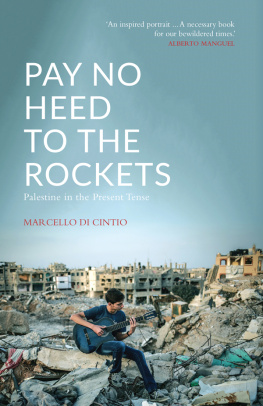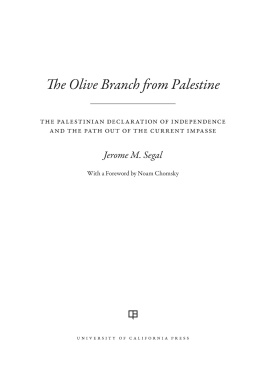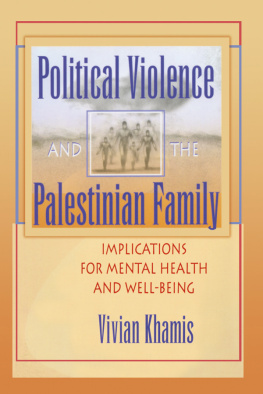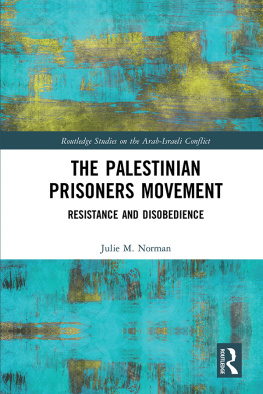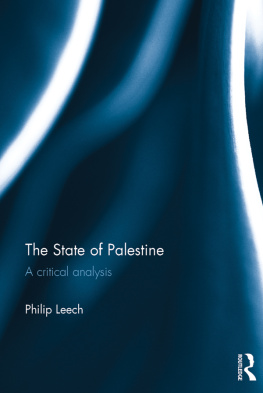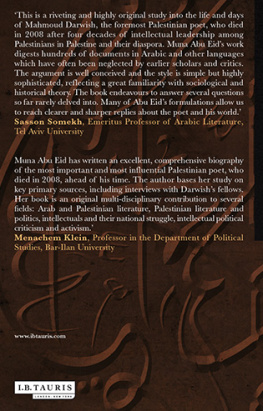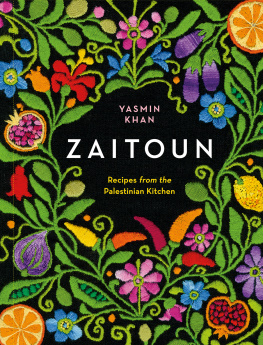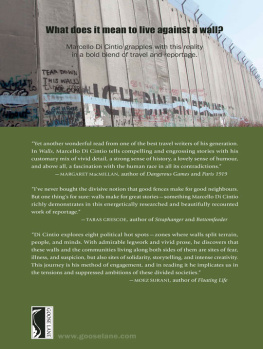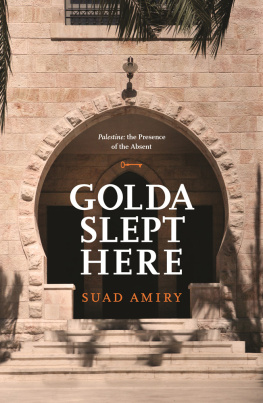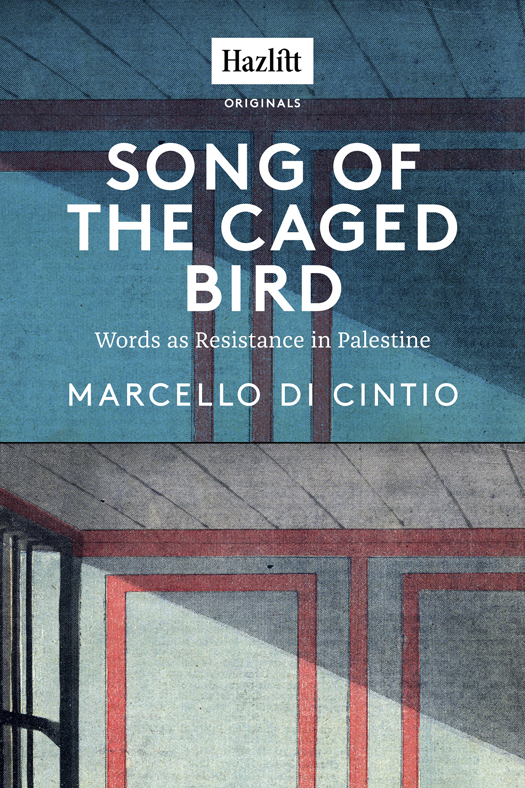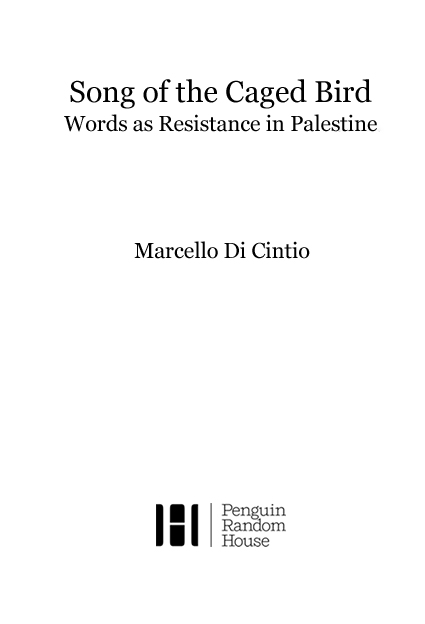Hazlitt Originals
A new series of original, commissioned e-books of varying length and subject matter, featuring both established and emerging authors from around the world. From investigative journalism and fiction, to travelogues, polemics, and interactive tablet creations, Hazlitt Originals aspire to push the boundaries of story form.
Titles in the series
Song of the Caged Bird: Words as Resistance in Palestine, by Marcello Di Cintio
Our Pet Queen: A New Perspective on Monarchy, by John Higgs
Remembrance, by Alistair Macleod
Braking Bad: Chasing Lance Armstrong and the Cancer of Corruption, by Richard Poplak
The Gift of Ford: How Torontos Unlikeliest Man Became its Most Notorious Mayor, by Ivor Tossell
You Arent What You Eat: Fed Up with Gastroculture, by Steven Poole
The Man Who Went to War: A Reporters Memoir from Libya and the Arab Uprising, by Patrick Graham
PUBLISHED BY ALFRED A. KNOPF CANADA
Copyright 2014 Marcello Di Cintio
All rights reserved under International and Pan-American Copyright Conventions. No part of this book may be reproduced in any form or by any electronic or mechanical means, including information storage and retrieval systems, without permission in writing from the publisher, except by a reviewer, who may quote brief passages in a review. Published in 2014 by Alfred A. Knopf Canada, a division of Penguin Random House of Canada Limited, Toronto. Distributed in Canada by Random House of Canada Limited.
www.penguinrandomhouse.ca
Knopf Canada and colophon are registered trademarks.
HAZLITT is a registered trademark of Random House of Canada Ltd.
Di Cintio, Marcello
Song of the caged bird : words as resistance in Palestine [electronic resource] / Marcello Di Cintio.
An e-book original.
Electronic monograph in HTML format.
eBook ISBN 978-0-345-80905-6
Library and Archives Canada Cataloguing in Publication data has been applied for.
Cover design by Michle Champagne
Cover image Leemage / Getty Images
v3.1
Contents
Singing in a cage is possible and so is happiness.
From The Canary, Mahmoud Darwish
1.
Jasmine bushes grew along the road I walked to the Palestine Writing Workshop each morning. Their white blossoms, like stars against the dark green leaves, waited until dusk to release their perfume. Id catch their fragrance only after the sun set, blood red, over the Mediterranean. I passed mulberry bushes, too, that dropped their fruit on the roadside and were mashed beneath my sandals. And I passed the olive trees whose leaves change colour during the day from green, to silver, to grey. At the end of the road, Birzeits taxi drivers waited to take students to Birzeit University, which stood on a nearby hilltop, or all the way to Ramallah.
I climbed up from the taxi park, past the post office that sells stamps featuring a portrait of poet Mahmoud Darwish. I passed the grocery store where I bought fresh green figs and olive oil in recycled water bottles, and the dusty caf wherelike all such cafs in Palestineevery man greets everyone else the moment he steps inside. When I reached the top of the hill, Id pause for a breakfast of hot falafel and pita from a sandwich shop before stepping inside the old stone home where I spent a July as writer-in-residence.
The Palestine Writing Workshop encompasses a library filled with books in both English and Arabic, a few small offices and a sunny conference room with bare, whitewashed walls and old windows with swinging shutters. Workshop staff and visitors use the kettle on a hallway shelf to soak Lipton tea bags or dissolve spoonfuls of Nescaf. The powdered coffee tastes like chemicals. Morgan, the PWW coordinator, was a fellow coffee snob who mercifully shared her French press and precious stash of fresh ground beans.
Only one of the ten writers registered for my creative nonfiction workshop, which I titled Telling the Truth, was a man. He never showed up. Of the nine remaining students, three were Americans married to Palestinian men. (Although Bettyes husband had recently passed away.) The rest were young Palestinian women. I suspect all were in their early to mid-twenties, but I have a hard time judging the age of women who wear headscarves. At first, only one, Yara, was not a hijabi. The Palestinians had studied English at one time or anothera prerequisite for the class since I cannot speak Arabic.
The Americans showed up on time for my first class; the Palestinians all arrived late. We gathered around a table in the conference room and introduced ourselves. I lectured about writing creative nonfiction for a little while and watched as they scribbled in their notebooks. We did a couple of rudimentary writing exercises, then I gave them an assignment for the following week. Write a scene from your life, I instructed, telling them they could write about whatever interested them. I deliberately avoided mentioning the Occupation.
In his book Occupation Diaries, Palestinian author Raja Shehadeh describes attending a historians lecture about the Nakbathe word, meaning catastrophe, that Palestinians and their supporters use to describe the founding of the state of Israel in 1948. Shehadeh writes:
As I sat listening once again to all the details of what happened, I wondered whether I would ever tire of hearing about and seeing films on 1948 and the Nakba. It is like Shahryar, the king in A Thousand and One Nights who can never tire of listening to Scheherazade. We continue to be bewildered and wonder how it could have happened, why it happened, how it can be explained and understood. We can never have enough of it.
I wondered what it meant to be so chained to a single narrative, to endure a sort of Sisyphean curse to hear and retell the same stories of oppression, exile and occupation over and over again.
I first visited the region at the end of 1999. Id travelled to Jerusalem because I wanted to be somewhere interesting when the clock turned on the new millennium. Ive returned to Israel and Palestine many times since then, both as a writer and a traveler, and although my understanding of the Occupation increased with each visit, I always saw the Palestinians in this same context of anger and deprivation. Like most outsidersregardless of which side of the conflict our sympathies lie withthis was the only narrative Id ever heard. Palestinians had been simplified by a seemingly unending struggle. They are characters in a single story.
I wanted to see if and how this story would manifest in my students writing, but I didnt want to influence what they chose to write about. I didnt want them to think I expected stories about checkpoints or the separation wall or their grandfathers uprooted olive trees. I wondered how many, if given the chance to write about whatever they wanted, would retell the same Occupation narratives.
Their stories started to arrive by email a few days after class, and I forwarded each piece to the other participants to read. Many were accompanied by apologies and disclaimers that betrayed a lack of confidence in their own worka common phenomenon in writing workshops. Bettye feared her story was contrived. Nora, another of the Americans, apologized for narrowly exceeding the arbitrary five-hundred-word limit I imposed. Dina wrote to say shed composed two stories for the assignment, but didnt like either of them. Plus I think that Ive done them wrong, she continued. I understood the assignment, but this understanding plays hide and seek with me. It vanishes when Im writing and when Im done it pops up to say that I didnt do it right. Hana was less poetic with her self-criticism:


